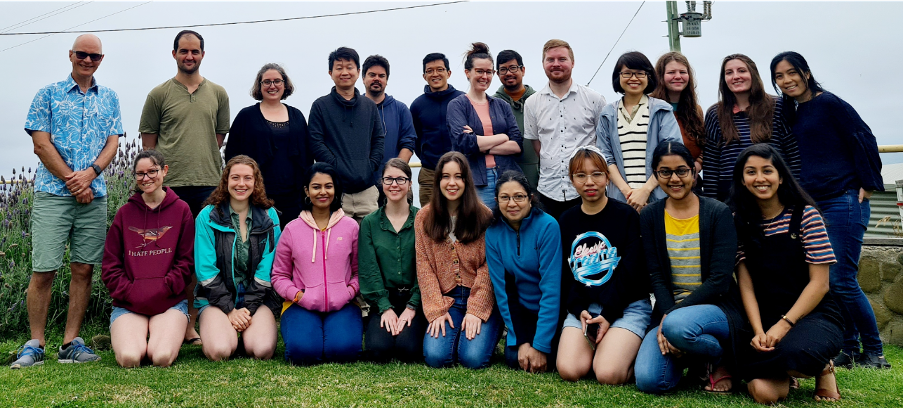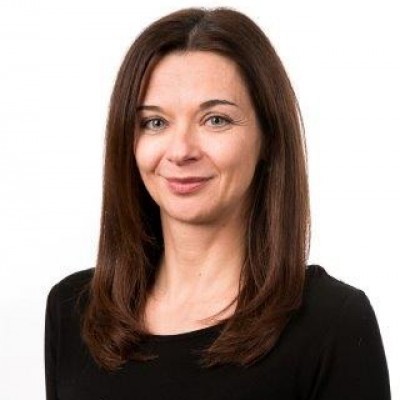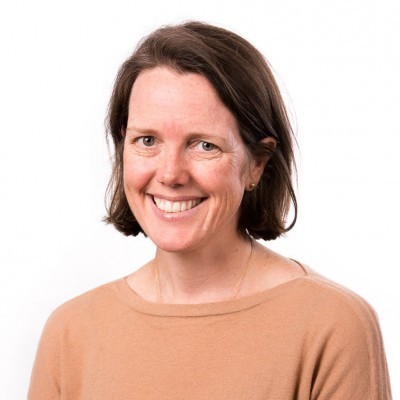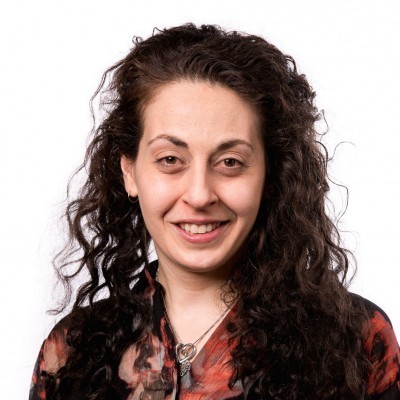Our Work | Institute Themes | Viral Infectious Diseases | Influenza
Influenza|Research
-
Research Groups
Clinical Research
-
Kent Group
Stephen’s group studies immunity to HIV, influenza and SARS-CoV-2. They are analysing a variety of vaccine strategies, including nanoparticle-based vaccines. They are studying a series of immune responses to gain better insights into protective immunity to important viral pathogens. They are developing monoclonal antibody therapies for HIV, influenza and SARS-CoV-2 to improve the treatment of these infections. The Kent group works very closely with Dr Amy Chung’s laboratory at the Doherty Institute.
Other work areas include:COVID-19, Immunology, HIV
Current Projects
-
Combined Influenza-AIDS Vaccines
Influenza and HIV are both serious global pathogens. Can a single vaccine be designed to cover both viruses? Recent advances in reverse genetic techniques allow insertion of foreign antigens into live influenza viruses. Further, live attenuated influenza vaccines are now highly effective vaccines. Stephen’s group is designing recombinant influenza vaccines with inserted HIV antigens to test as a combined Influenza-AIDS vaccine. An advantage of this strategy is that as a mucosal virus, there is a strong likelihood that immunity at mucosal surfaces, where HIV is first encountered, can be induced with this approach.
-
Influenza – specific ADCC: role in a Universal Flu vaccine?
Influenza mutates regularly to avoid neutralising antibodies. Immune responses targeting more conserved areas are needed to combat new flu pandemics. Stephen’s group have adapted and refined their HIV ADCC assays to study Influenza. They have found there is a remarkable degree of cross-reactivity in influenza ADCC immunity. They recently found that influenza ADCC can play a role in reducing the severity of the 2009 Swine Flu epidemic. The work opens up a whole new field of flu immunity. They are now studying how flu-specific ADCC can be induced by vaccination and lead to protective immunity.
-
Influenza immunity and novel vaccines
Seasonal Influenza continues to extract a huge toll on the community and there is the ever-present threat of new pandemics. Led by Dr Adam Wheatley, we are making headway into improving our understanding of influenza immunity with a view to improving vaccines. Current vaccines are imperfect and often target variable regions of the virus which “drift” away from effective immunity each winter. We are focussing on improving immunity, both antibodies and CD4 T cell helper cells (“Tfh”) to conserved parts of influenza, including the stem of HA. We also have a major interest in improving ADCC antibodies against influenza. The group has had a major push to understand and improve immunity to Influenza type B viruses and we have now generated panels of monoclonal antibodies that target this virus. We have series of exciting projects studying nanoparticle vaccines where tiny capsules are loaded with vaccine antigens to protect them from degradation and target important immune cells that stimulate effective immunity.
Lab Team

-
Dr Adam WheatleyLaboratory Head
-
Laboratory Head
-
Hyon-Xhi TanPostdoctoral Fellow
-
Research Fellow
-
Research Officer
-
Rosela WebsterPostdoctoral Fellow
-
Mai Ngoc VuPostdoctoral Fellow
-
Lara SchwabPostdoctoral Fellow
-
Mitchell ZhengPostdoctoral Fellow
-
Mai-Chi TrieuVisiting Postdoctoral Fellow
-
Andrew KellyResearch Assistant
-
Lauren BurmasResearch Assistant
-
Julie NguyenResearch Assistant
-
Robyn EsterbauerResearch Assistant
-
Thakshila AmarasenaResearch Support Officer
-
Jane BattenProject Manager
-
Janavi RambhatlaSenior Project Officer
-
Devaki PilapitiyaPhD Student
-
Ruth PurcellPhD Student (co-supervisor with Amy Chung)
-
Isaac Barber-AxthelmPhD Student
-
Kirsty FieldPhD Student
-
Samantha DavisPhD Student (co-supervisor with Amy Chung)
-
Thu DoPhD Student
-
Yee-Chen LiuPhD Student
-
Veronica ZoestPhD Student
-
Professor David O'ConnorHonorary
-
Professor Shelby O'ConnorHonorary
-
Dr David (Yi) JuHonorary
-
Dr Hillary VandervenHonorary
-
A/Prof Matt ParsonsHonorary
-
Dr Nghia TruongHonorary
-
Dr Sinth JegaskandaHonorary
-
A/Prof Steve RockmanHonorary
-
Dr Emily PilkingtonGuest Scientist
-
Dr Shiyao LiGuest Scientist
-
Diyana HassanelGuest Scientist
-
Zihnil MazradGuest Scientist
-
Brown Group
Lorena’s group is dedicated to understanding different aspects of influenza virus structure and replication, as well as the host immune response to the virus that may impact on disease outcome. They study areas of vulnerability that can be targeted by vaccines and therapeutics to control seasonal and highly pathogenic isolates.
-
Deng Group
While her team’s core task has always been on the molecular surveillance of influenza viruses and its methodology development, Yi-Mo’s group have been collaborating actively both within and outside the Centre on several research projects relating to the molecular characterisation and evolution of human or animal influenza viruses.
-
Hurt Group
Aeron’s research team at the WHO Collaborating Centre for Reference and Research on Influenza works on aspects of understanding the replication and transmission of drug resistant influenza viruses, characterising novel drug resistance mutations, and the global movement and evolution of human and avian influenza viruses.
-
Kedzierska Group
Professor Katherine Kedzierska’s team researches the immunity to viral infections, especially the newly emerged influenza viruses. Her work spans basic research – from mouse experiments to human immunity, through to clinical settings, with a particular focus on understanding universal CD8+ T cell immunity to influenza viruses. Her studies aim to identify key correlates of severe and fatal influenza disease in high-risk groups including children, the elderly and Indigenous Australians.
Other work areas include:COVID-19, Immunology, Viral Infectious Diseases
-
Reading Group
Patrick’s group investigates how the body first detects and responds to respiratory viruses. They investigate viral attachment factors, cellular receptors and entry pathways, virus-induced activation of host genes and the mechanisms by which intracellular host proteins can block virus replication.
Other work areas include:COVID-19, Immunology, Viral Infectious Diseases
-
Sullivan Group
Sheena’s epidemiology group at the WHO Collaborating Centre for Reference and Research on Influenza undertakes research into understanding influenza vaccine effectiveness and the validity of the methods used to estimate it. The group also provides technical assistance to partners in the Western Pacific Region of the WHO.
Other work areas include:COVID-19, Immunology, Viral Infectious Diseases
-
Valkenburg Lab
The Valkenburg laboratory investigates viral immunity to emerging viruses with pandemic potential: influenza viruses and SARS-CoV-2. Our work spans randomised control vaccine trials, observational studies of infected patients and animal models to decipher immune correlates to drive novel translational outcomes for specific diagnostics, targeted therapeutics and next generation vaccines for public health impact.
Other work areas include:COVID-19, Immunology, Viral Infectious Diseases, Public Health
-
Wakim Group
Linda’s group’s main research focus is understating the mechanism of action and regulation of expression of antiviral proteins. Linda’s group also aims to characterise CD8 T cell responses within the lung following virus infection.
Other work areas include:Immunology
Anyone can be infected by influenza, but some people are more susceptible to infection, severe disease and clinical complications. Clinical studies at the Doherty Institute are focused on specific risk groups, seeking to understand characteristics of viruses and the immune system that result in increased susceptibility and clinical severity. In particular, current studies are considering:
- Young children and the elderly in collaboration with Deepdene Surgery
- Indigenous Australians in collaboration with Griffith University, Queensland
- High-risk groups of hospitalised patients in collaboration with the FluCAN network and Shanghai Public Clinical Hospital
Doherty Institute researchers are also characterising immune responses to influenza vaccination or infection in various groups of people, including:
- Health care workers in collaboration with the Peter MacCallum Cancer Centre
- Patients undergoing renal transplantations in collaboration with Monash Health
- Infants in the first year of life in collaboration with Oxford University Clinical Research Unit, Ho Chi Minh City, Vietnam.
Now recruiting volunteers
There are currently no Now recruiting volunteers
Current projects
-
Influenza
How do cross-reactive memory B cells affect influenza vaccine titers?
-
Influenza
LIFT: Investigating T cell immunity to influenza in Indigenous populations
-
Influenza
Understanding immunity to influenza viruses in patients hospitalised with severe and fatal disease
-
5-10% of adults &
20-30% of children worldwide
get the flu each year









